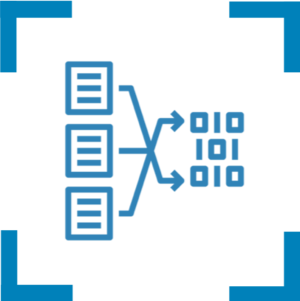We drive digitization from ideation to implementation.
Functional focus:
Digital Transformation
and Innovation.

1. Innovation and strategy
We combine design thinking methods, conceptual strength, startup methodology with pragmatic integration/implementation strength. Our support starts from ideation and concept to validation and implementation and – if desired – also operations.
2. Prototyping and implementation
We use minimum viable products in order to implement solutions and digital business models fast, cost-efficiently, and with little risk. We maximize the probability of success by consequently adapting any solution to user needs with rapid prototyping.
Furthermore, we support the whole implementation process. This way we ensure, that all concepts developed can be operated successfully – thanks to extensive experience in large corporate change processes and in agile environments with companies and startups.
Topic focus:
Automation with RPA and AI

1. Robotic Process Automation (RPA)
– like Excel Macros, just way better
Highly repetitive tasks are still often executed with a high degree of manual labor. If the process works exactly the same way every time, RPA is the easiest and best automation solution. A software robot performs a determined step sequence, over and over again, without getting tired or bored. Chatbots for customer service, for example, are often based on RPA, as they can handle specified requests very well. Many customers prefer RPA as an easy, cheap, and low-risk entry into automation technologies.
2. Machine Learning
– knowledge generated from data
Machine learning algorithms based on neural networks need data to learn. In exchange, they can evaluate data fast and they are – depending on the target function – able to recognize patterns in these data. Each application has to be trained separately with an appropriate data set. Frequent areas of application are, for example, fraud detection, cybersecurity, and other risk models as well as predictive maintenance.
3. Machine Reasoning
– Scalable human knowledge
Machine reasoning is an advancement of expert systems and is used to automate processes in a flexible way. Expert knowledge is transferred to the machine via “knowledge items” which represent single, granular process steps. These knowledge items are pieces of program code that form a dynamic script, they are reusable in different processes. This way expert knowledge is kept in the company (or brought back) and is made scalable.
